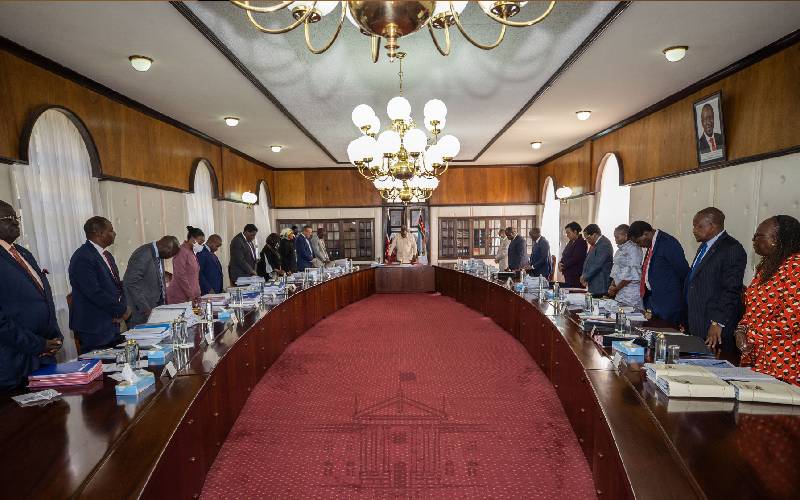
It is gratifying that a full Cabinet meeting of the Government of Kenya was eventually convened this week. The Cabinet is the highest council in the country’s national executive. It constitutionally comprises the President, Deputy President, the Attorney General and not less than 14 and no more than 22 Cabinet Secretaries.
Article 130(1) of the Constitution of Kenya (2010) says, “The national executive of the Republic comprises the President, the Deputy President and the rest of the Cabinet.” It is known that the national executive has not sat to conduct the business of State for more than two years, because of bad blood in the Presidency.